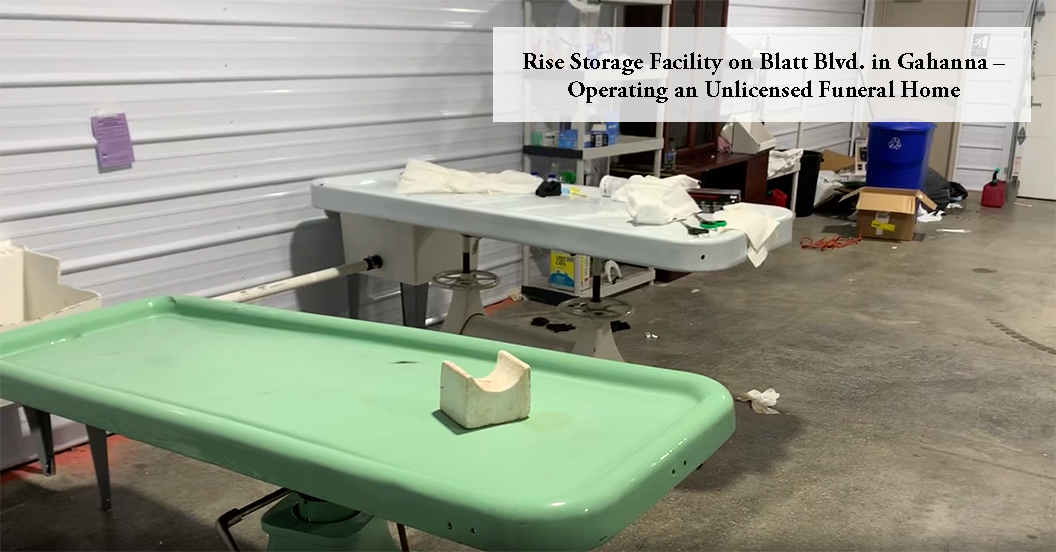Akron pastor who operated unlicensed funeral businesses sentenced to over decade in prison

An Akron pastor who allowed bodies to decay unrefrigerated in a storefront in Columbus and a storage locker in Gahanna is facing over a decade in prison for performing unlicensed funeral services across Ohio and other crimes.
Lucas County Common Pleas Judge Michael Goulding on Friday morning sentenced Shawnte Hardin, 42, who has addresses in Columbus and Akron, to a minimum of 11 years and 10 months in prison.
As required by Ohio's Reagan Tokes Act, Goulding gave Hardin an indefinite sentence on some of his charges. Hardin could serve up to three years of additional time if the Ohio Department of Rehabilitation and Correction determines he is a continued threat to society.
Past reportingJudge finds Ohio man guilty of operating unlicensed, makeshift funeral businesses
Past reporting:Two bodies found during search of vacant Columbus storefront on East Livingston Avenue
Charges include impersonating a funeral director, abusing a corpse and engaging in a pattern of corrupt activity
Earlier this month, Goulding found Hardin guilty of dozens of charges, including eight counts of impersonating a funeral director, six counts of abusing a corpse and one count of engaging in a pattern of corrupt activity, a first-degree felony.
The Ohio Attorney General's Office, which prosecuted the case, accused Hardin of operating several unlicensed funeral-related businesses in Franklin, Summit, Cuyahoga and Lucas counties. The businesses included Hussain Funeral Directors, Celebration of Life Memorial Chapels, Hardin Funeral Home Inc., American Mortuary Services and Transportation, and Shawnte Davon Hardin Services LLC.
“Real pastors pray at funerals, not prey on grieving families,” Ohio Attorney General Dave Yost said. “The defendant’s lies, fraud and complex scheme – including literally driving bodies across the state – are thankfully ended by today’s sentence.”
In a memo filed with the court last week, Hardin’s defense attorney, Richard Kerger, argued for his client to be given lengthy parole in lieu of prison time. Kerger described Hardin as a pastor — he preached at Greater Faith Missionary Baptist Church in Akron — trying to help his congregants and later, others who could not afford funerals for their deceased loved ones.
"It is now clear where (Hardin) should have done things differently," Kerger wrote. "As part of his role as pastor, he began assisting his congregates when they had a death in the family ... He learned where and how to cut costs and still provide a meaning celebration of an individual’s life ... There is no hint of fraud to benefit him personally."
Bodies decayed in unrefrigerated storefront in Columbus under Hardin's care
Brad Tammaro, senior assistant attorney general and the special prosecutor on the case, disagreed with Kerger's characterization in memos filed with the court, saying Hardin deliberately misled grieving families to make money.
"Hardin’s scheme sought to take advantage of individuals suffering through the worst time of their lives," Tammaro wrote. "Hardin ran a cut-rate business without the knowledge, training, resources and legal authority to do the job properly."
Hardin attended the Pittsburgh School of Mortuary Science in 2013, but failed the course and dropped out in 2014, according to court documents. Prosecutors accused Hardin of playing a word game and misrepresenting his tenuous ties to two licensed funeral directors to present himself to clients as legitimate.
In September, the Ohio Bureau of Criminal Investigation removed two bodies from a vacant storefront on the Near East Side of Columbus. Prosecutors said in court documents that the remains of Rifat Podzic and Rhonda Cooper were stored there unrefrigerated and slowly decomposing.
Their families were shocked to find out about this, according to court documents. Cooper's body was supposed to be cremated, but was stored there for a month after her funeral, to the horror of her sister, Carol King.
According to court documents, a man who was hired to transport the bodies of Cooper and Podzic to a legitimate funeral home after they were discovered testified at trial that the signs of decomposition were obvious.
At an unrefrigerated storage unit in Gahanna, Hardin stored bodies of deceased individuals who had COVID-19, according to court documents. Prosecutors said Hardin would wash the bodies there and the water and fluids once seeped into an adjacent storage unit.
Prosecutors described in court documents how bodies in Hardin's care were often greatly decomposed by the time their loved ones got to see them last.
"Charles Weatherspoon's family had their last vision of him with his head swollen twice its normal size in a casket lined with trash bags," Tammaro wrote.
Other crimes Hardin was convicted of in this case include writing bad checks to legitimate funeral businesses for things like cemetery plots, and tampering with records when he used somebody else's credentials to submit information to Ohio's Electronic Death Registration System, according to court documents.
The Ohio Attorney General's Office said more than 80 cremated remains were found in January at Greater Faith Missionary Baptist Church in Akron.
Jordan Laird is a criminal justice reporter at the Columbus Dispatch.
jlaird@dispatch.com
@LairdWrites
This article originally appeared on The Columbus Dispatch: Columbus man who operated unlicensed funeral businesses sentenced

